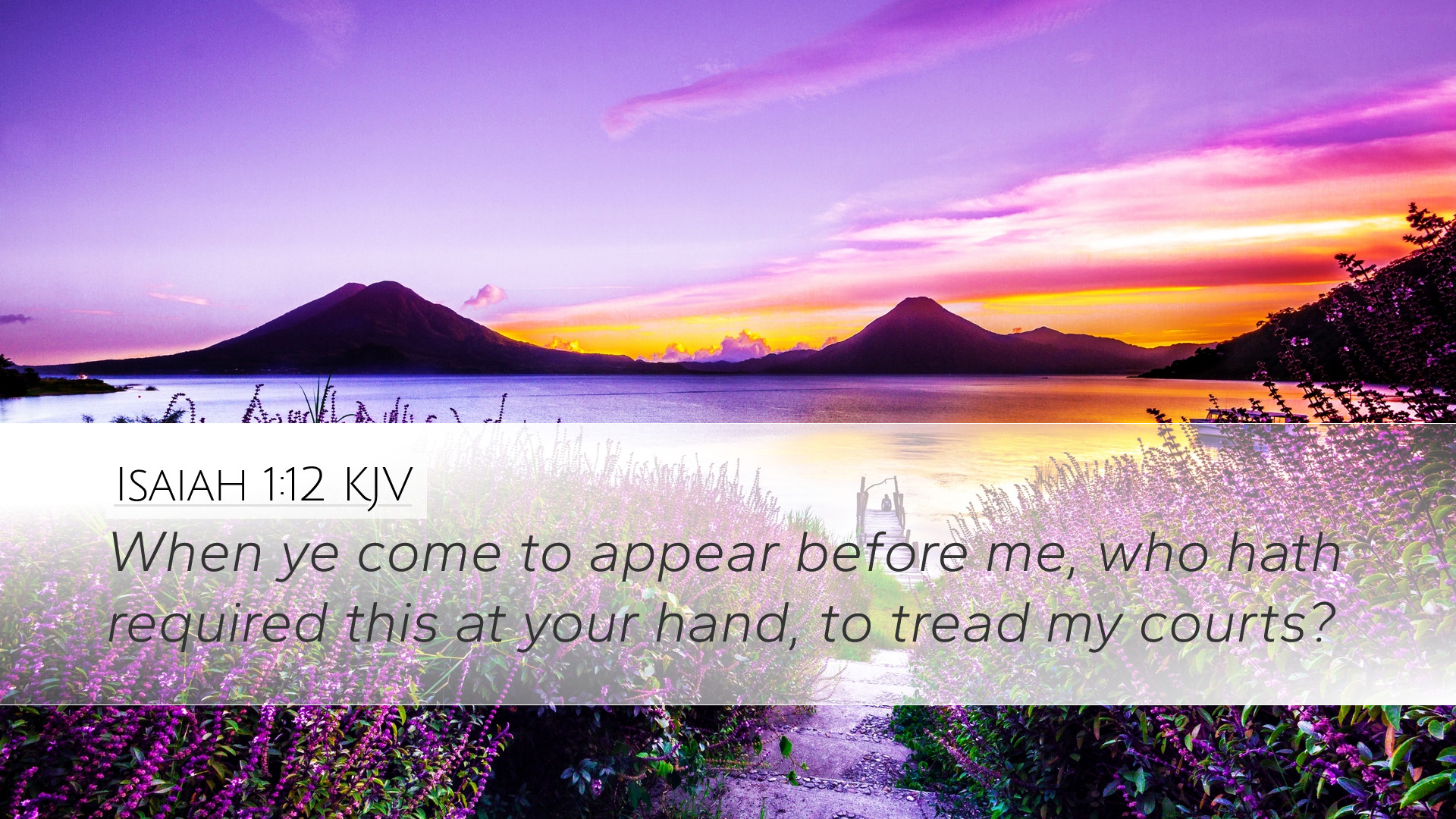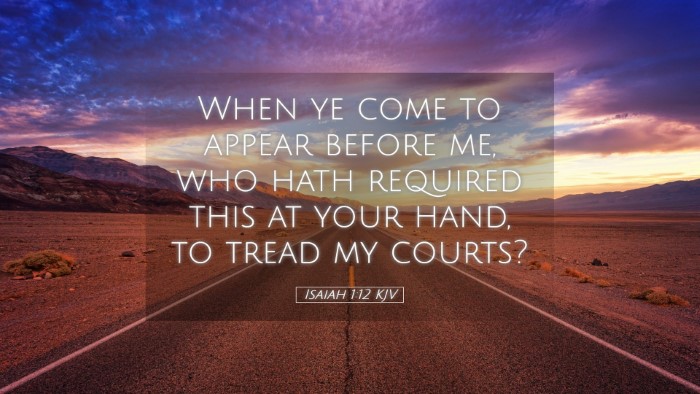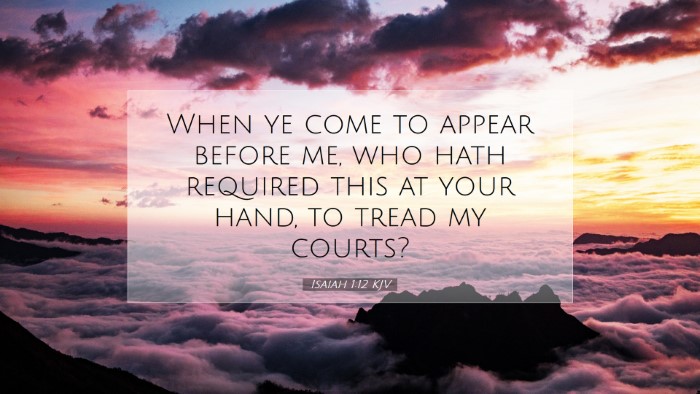Commentary on Isaiah 1:12
Isaiah 1:12 states: "When you come to appear before me, who has required of you this trampling of my courts?" This verse serves as a pivotal point of reflection in the book of Isaiah, which addresses both the people of Israel and the state of worship in their lives.
Contextual Overview
This verse is set within a broader passage where God confronts His people regarding the authenticity of their worship. Through the prophetic messages of Isaiah, the Lord reveals that the rituals and sacrifices offered by His people have become mere formalities, lacking sincerity and true devotion.
The Nature of Worship
Matthew Henry emphasizes that God values the heart behind worship rather than the mere performance of ritualistic acts. In this verse, God questions the sincerity of the people’s intentions when they approach Him. The phrase "who has required of you" indicates that their formal worship practices are not what God desires; instead, He seeks heartfelt devotion.
Indifference and Hypocrisy
Albert Barnes elaborates on the idea of indifference and hypocrisy in worship. He explains that the people of Israel have allowed their worship practices to become empty traditions, devoid of true meaning. The "trampling" of the courts signifies their disregard for the sanctity of the space where God is to be worshiped. They present offerings while living contrary to God’s commandments, thus rendering their worship meaningless.
God's Requirements
Adam Clarke interprets this passage as a call to return to the essence of true worship. God asks, "who has required of you," signifying that He never mandated such mechanical compliance but instead desires genuine repentance and a contrite heart. Clarke posits that God is advocating for a relationship characterized by love, obedience, and true reverence.
Theological Implications
The theological implications of Isaiah 1:12 are profound. It challenges believers to reflect on their motivations in worship. Are they merely fulfilling religious obligations, or is their worship birthed out of love and reverence for God? The emphasis on the heart's condition aligns with New Testament teachings that highlight the importance of sincerity in faith (Matthew 15:8-9).
Application for Contemporary Worship
For pastors and church leaders, this verse serves as a poignant reminder of the necessity for authenticity in both personal and corporate worship settings. Henry invites leaders to scrutinize whether the practices observed in their congregations reflect a genuine relationship with God or whether they are simply rituals followed without understanding.
- Evaluate Worship Practices: Leaders must encourage congregations to understand the reasons behind their rituals.
- Promote Heartfelt Worship: Emphasize the importance of coming before God with repentance and sincerity.
- Teach on the Nature of God: Help congregants see that God desires a relationship, not mere formalities.
Personal Reflection
For students and theologians, Isaiah 1:12 invites a deep personal reflection on one’s approach to God. It poses essential questions: Am I trampling the courts of the Lord with empty rituals? Do I approach God with a sincere heart and a desire for true communion? This verse urges a reassessment of individual faith practices and encourages a move towards a more profound, transformative relationship with the Divine.
Conclusion
In summary, Isaiah 1:12 challenges the reader to move beyond mere outward expressions of faith and to seek a deeper understanding of what it means to worship God authentically. Drawing insights from Matthew Henry, Albert Barnes, and Adam Clarke, we recognize that God desires heartfelt worship that reflects a genuine relationship rather than hollow traditions. This verse resonates deeply within the spheres of pastoral leadership, personal faith, and the broader communal experience of worship.


